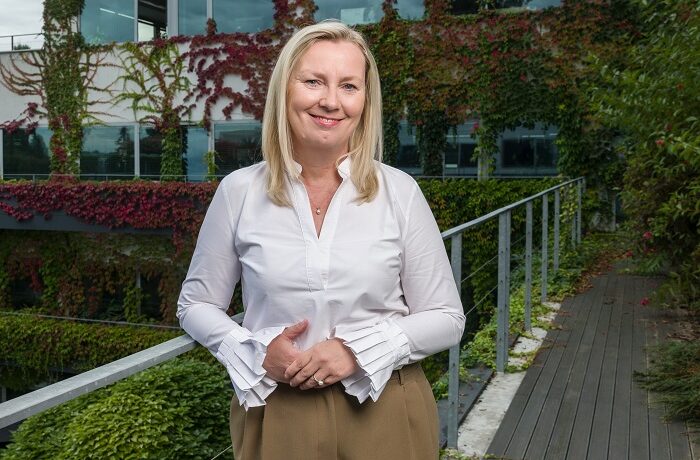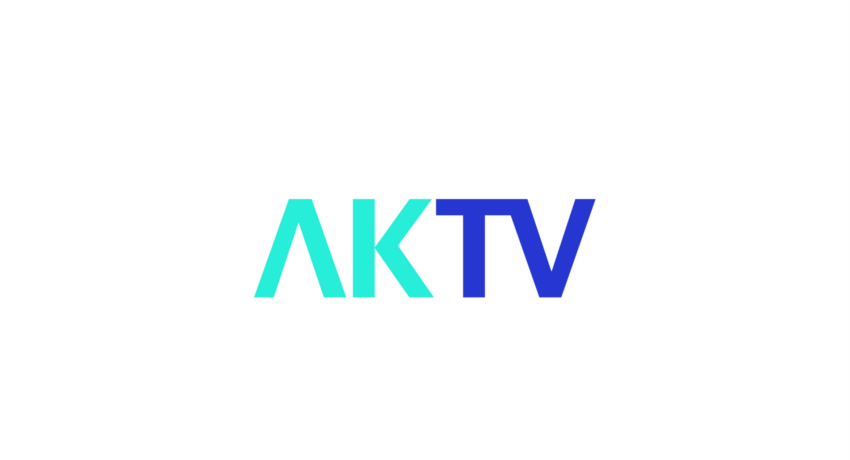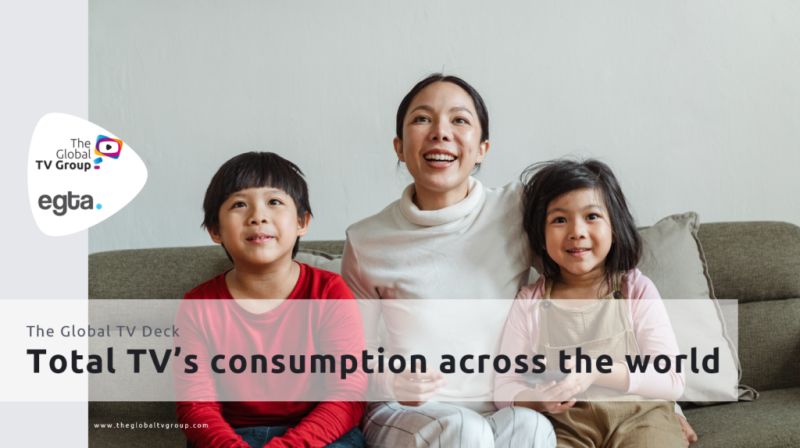The proposed major media amendment to provide more funding for ČT (Czech Television) and ČRO (Czech Radio) cannot be adopted without a discussion on the role of the public service. the discussion should have been held at the beginning of the preparation of the new legislation, says president of AKTV, Klára Brachtlová.
The Ministry of Culture has prepared a draft amendment to the Czech Television Act, the Czech Radio Act and the Radio and Television Fees Act (the “major media amendment”) without defining the tasks and content of the public service. This is unacceptable according to Klára Brachtlová, President of the Association of Commercial Television (AKTV), which brings together the largest commercial television groups Nova, Prima and Óčko TV. Without this step, it is impossible to quantify the amount the public service media should receive, she adds. She also says that the commercial TV companies were shocked by the draft of the major media amendment, which would lead to an increase in fees for ČT to CZK 160 per month and for ČRo to CZK 55 per month, because they were not invited to discuss its wording.
In its statement, the Association of Commercial Television has given several reasons why it does not agree with the major media amendment. One of the reasons you gave was that the bill should have been preceded by a discussion on what the public service should contain. Does AKTV have an idea of what the public service should look like in respect of television broadcasting?
The question of the design of public service broadcasting has no simple answer. The definition, which exists in some form, is one thing but its codification is another and more difficult one. We take our inspiration from Western countries, e.g. from the BBC, which defines the public service through the pillars of strategic priorities. I would prefer a more specific definition including commitments on the number of hours devoted to specific content formats. However, what we are facing is that there has been no discussion on this topic in our country. It should take place with the participation of media experts and should be at the beginning of the preparation of legislative changes.
AKTV is not the only one talking about the need for such a discussion. Who should organise it and where should it take place? Are the Chamber of Deputies or the Senate suitable institutions for such a debate?
We can draw on the recent experience we have with the discussion of the amendment to the Audiovisual Act. To discuss the amendment, the Ministry of Culture organised a working group comprising all the entities concerned. We think that the discussion on the amendment to the Act on Czech Television requires the same. This is an important change affecting the entire media market and it is absolutely necessary to hold such a discussion.
On the other hand, Culture Minister Martin Baxa said at a press conference where he presented the major media amendment that the proposal is the result of a year of preparation. So, there must have been some discussions.
Our belief was based on the fact that Minister Baxa publicly stated in July 2022 that the government would not increase the licence fees during its term of office. This made the resulting proposal all the more shocking to us. We were not invited to any group or informed of the text of the bill. Nor is it true that the Minister of Culture has been in close contact with the commercial TV broadcasters in respect of the draft amendment as he claimed at the press conference.
So, until the last moment, by which I mean the public press conference on 5 September, you had no idea what the amendment contained.
Exactly. We learned about it only from the press conference and then from the documents that the ministry put into the inter-ministerial comment procedure, i.e. directly into the legislative process.
It is right that the state is concerned about sustainable funding for public service media, but it must start from the other end. It must be known in detail what Czech Television uses the money for, the strategic priorities of the public service must be defined, and only on the basis of these steps should it be quantified how much Czech Television and Czech Radio need for this service.
What was the biggest surprise for you? The proposed amount of the TV fee or the expanded definition of a payer?
We understand that the Czech Television Act is thirty years old and that at the time of its preparation it did not take into account the possibilities of viewing media content that are offered by new technologies. From this perspective, the extension of the definition of a payer is understandable. However, we find the proposed amount of the TV licence fee shocking. The Ministry expects Czech Television to collect an extra CZK 1.4 billion in fees from households. This is an extra-large amount of money, and in such a case it must be defined what Czech Television will use these funds for. Otherwise, they may be invested in activities that may not be related to the public service. It is right that the state is concerned about sustainable funding for public service media, but it must start from the other end. It must be known in detail what Czech Television uses the money for, the strategic priorities of the public service must be defined, and only on the basis of these steps should it be quantified how much Czech Television and Czech Radio need for this service. And I am leaving aside the fact that there is an ongoing debate throughout Western Europe about whether licence fees are the right way to finance public service media (see the box at the end of the text, Ed.). In addition, the bill includes changes to the collection of fees from corporate payers, which is an additional CZK 400 million. This brings the total to just under CZK 2 billion for ČT.
From the perspective of Czech Television and Czech Radio, however, the argument of price increases since the last adjustment of the TV and radio fees 15 and 18 years ago, respectively, is logical. In that time, prices have risen more than the proposed fee increase. Thus, according to ČT’s estimate, the fair value of the fee this year is CZK 97, not CZK 135, i.e. 40% lower.
Yes, but if we compare the budgets of all Czech TV stations and see that the costs of ČT in production are two billion crowns, which means that ČT invests this amount of money in content every year, this is an incredibly high amount of money. We must therefore ask again why there is no audit of what ČT is spending money on and whether the investment is being directed towards public service activities and why the audit is not followed by the calculation of the amount for which the investment in ČT needs to be increased.
Czech Television has introduced a savings plan for 2023 and 2024, which intends to save a total of CZK 910 million for these two years. On average, this is more than CZK 450 million per year.
ČT’s CEO, Petr Dvořák, said that CZK 2 billion would be in Czech Television’s accounts this year. The source of this money is the aforementioned savings and the VAT refund from 2011 and 2012 in the amount of CZK 460 million (higher VAT deductions can be used by ČT and ČRo until 2024, Ed.). In our opinion, ČT has sufficient reserves to continue operating under the current financing scheme for at least two more years. This means that the discussion about the role of the public service and its form can take place without putting ČT’s operation at risk.
ČT has sufficient reserves; the discussion about the role of the public service and its form can take place without putting ČT’s operation at risk.
In its statement, AKTV also noted that the draft amendment provides for an increase in the TV fee but maintains advertising on ČT. The volume of advertising on ČT is currently limited to 0.5% of daily broadcasting time. In addition, ČT can only use two of its channels for advertising. The remark may suggest that AKTV would be in favour of removing advertising from ČT altogether. Is that right?
Yes, it is. We are not just talking about traditional TV advertising but also about sponsorship, which is also advertising from the TV viewer’s perspective. But the law distinguishes between the two types of commercial communication. ČT receives around CZK 250 million a year from sponsorship alone, which is money that belongs to the commercial market. Our position is therefore clear: public service media should not compete with commercial media in the way they finance their operations.
But if we take into account the current situation on the TV advertising market, which is basically dominated by two entities – TV Nova and Media Club – they are reaching the limits of their advertising capacity. Would the commercial TV market be able to absorb this money?
The point is that sponsorship has a different legal definition and is not subject to the legal limits of traditional advertising. Commercial TV stations have room to absorb this money.
Public service media should not compete with commercial media in the way they finance their operations.
Your statement also mentioned the connection between the amendment to the Audiovisual Act and the amendment aimed at increasing fees for ČT, which was Minister Baxa’s argument according to your communication. Could you elaborate on that?
There is no connection between the preparation of these two amendments, although the Minister suggested otherwise. In the light of the media amendment, however, it should be recalled that the amendment to the Audiovisual Act obliges commercial entities to pay 2% of their annual income from streaming services, plus it introduces a new obligation to invest directly in Czech audiovisual production. The amended law is expected to enter into force in 2025, which will subsequently bring a significant amount of money into the market. Combined with the increase in money for ČT, the volume of funds on the audiovisual market will increase significantly. Therefore, we are seriously concerned about market volatility and high input price inflation. We are a small market, with limited capacity, and we are already encountering this in many cases. Now imagine that in one year there will be an extra two billion crowns on the market.
PUBLIC SERVICE MEDIA FUNDING IN EUROPE
• Funding through a FEE PAID BY INDIVIDUALS. Countries where licence fees are collected include: Czech Republic, Croatia, Ireland, Germany, Poland, Austria, Slovenia and Great Britain.
• Public service media funding from a BUDGET prevails in Belgium, Bulgaria, Estonia, Cyprus, Lithuania, Latvia, Luxembourg, Hungary, Malta, Netherlands, Romania, Spain, and Slovakia.
• A less frequent way of public service media funding includes payments made TOGETHER WITH ELECTRICITY as is done in Italy, Portugal and Greece or collecting fees through special tax on public service broadcasting as in Finland, France and Sweeden.
• NORDIC COUNTRIES: broadcasting tax instead of licence fees (Norway, Island, Finland, Sweeden).
EXAMPLES OF CHANGES IN CERTAIN COUNTRIES
• NETHERLANDS: licence fees were abolished in 2000; since then, the Dutch public service broadcaster Nederlandse Publieke Omroep (NPO) is essentially financed by annual state subsidies.
• DENMARK: transition from licence fees to state budget funding. In Denmark, the licence fee was paid from 2018 until the end of 2021, replaced by state funding from 2022.
• FRANCE: In July 2022, the French Parliament approved the end of the payment of licence fees; the abandoned model is replaced by a minimum VAT increase.
• AUSTRIA: In the first half of 2023, it was decided that ORF would change its funding system. The new model will reduce the licence fee: it will now be EUR 15.30 per month (per household) instead of GIS (linked to the device).
• SWITZERLAND: TV and radio fees make up 81 percent of the budget of the non-profit public corporation SRG SSR. Following a referendum held several years ago, the fee structure was changed. Instead of CHF 451 per year, CHF 365 per year were paid from January 2019. In January 2021, the fees have dropped to CHF 335.
• NORWAY: Until 2019, NRK was financed through a licence fee linked to the ownership of a television set, but this model has been abandoned. Since 2020, NRK has been financed from the state budget. Anyone with a certain income must pay an amount to fund NRK through taxes. In practice, an ordinary household pays roughly the same amount in NRK tax as it used to pay in broadcasting tax, but the tax is no longer linked to the ownership of a TV set.
• GREAT BRITAIN: Discussions have been ongoing since last year about how the BBC will be funded in its next cycle of operation, from 2027. Different options for future BBC funding are being considered.
KLÁRA BRACHTLOVÁ, PRESIDENT OF AKTV: She has been President of AKTV since the start of 2023, in January she was appointed Chief External Affairs of CME, the parent company of TV Nova. She was working in the finance section of Nova Group from 2007. She gradually held positions in reporting, financial planning, and analyses, she was Deputy CFO from 2012, CFO from 2014, later statutory executive, and in 2019, she became CEO of TV Nova.
Source: mediaguru.cz









